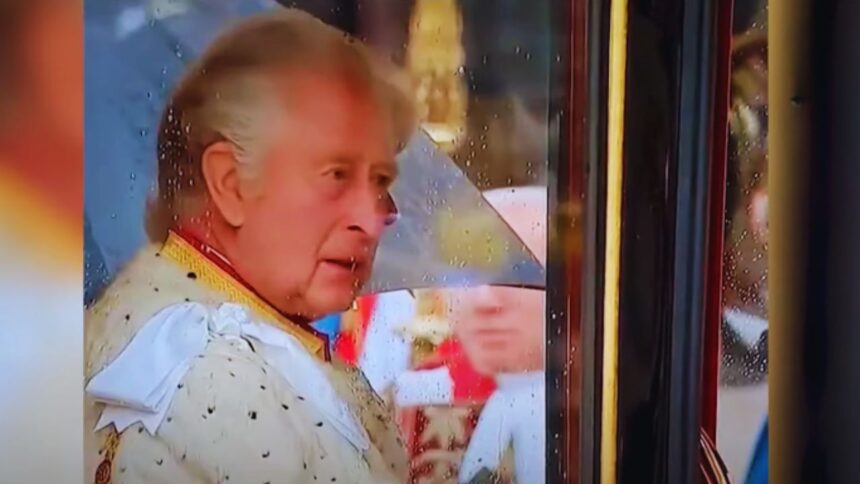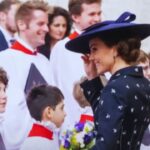Royal Tardiness Sparks Regal Rumble
In the grandeur of Westminster Abbey, where history echoes through every arch and stone, punctuality is not just a courtesy—it’s a royal decree. But when Prince William and Kate Middleton, the Duke and Duchess of Cambridge, strolled in fashionably late to King Charles III’s coronation last year, they unwittingly ignited a royal storm. According to royal biographer Robert Hardman’s latest revelation in his book, “The Making of a King: King Charles III and the Modern Monarchy,” the delayed entrance of the Prince and Princess of Wales ruffled more than a few regal feathers.
An Awkward Delay
Hardman paints a vivid picture of the scene: King Charles, flanked by Queen Camilla, poised for his coronation, only to find his son and daughter-in-law tardy by a minute and a half. The tension was palpable, with the delay adding an unwelcome layer of stress to an already monumental occasion. As the cameras captured the moment, a lip reader deciphered the King’s murmurs, revealing a candid glimpse into his frustration: “We can never be on time … There’s always something … This is boring.” It’s a rare peek behind the veil of regal composure, exposing the human impatience beneath the crown.
Excuses and Explanations
The reasons behind the royal tardiness varied. Sources suggested that William and Kate might have lost track of time while filming a coronation video earlier that day. Meanwhile, their aides pointed fingers at the king’s early arrival, which allegedly trapped the royal convoy in traffic. Regardless of the cause, the consequence was clear: a frantic scramble to readjust the ceremony’s schedule, relegating the Duke and Duchess to a position behind the King and Queen—a breach of protocol that surely didn’t go unnoticed.
A Regal Resumption
Despite the rocky start, King Charles III’s coronation proceeded without incident, marking the dawn of a new era for the British monarchy. With a solemn declaration to serve rather than be served, the king embraced his newfound role, succeeding his mother, Queen Elizabeth, after her reign of over seven decades. However, his ascent to the throne hasn’t been without challenges. Earlier this year, Charles disclosed his battle with cancer, undergoing treatment for an undisclosed condition. Despite this setback, the king has resumed his royal duties, showcasing a resilience befitting his regal lineage.
A Royal Family in Turmoil
Yet, the specter of illness looms not just over the king but also over his family. Middleton, too, has revealed her own cancer diagnosis, temporarily withdrawing from public life to focus on her health. As the monarchy navigates these personal trials amidst its ceremonial duties, the resilience and humanity of its members shine through. Behind the regal facade lies a family bound by duty, love, and the shared burden of public scrutiny—a reminder that, even in the most exalted circles, the human experience remains universal.
In the hallowed halls of power, where tradition and protocol reign supreme, even the slightest deviation from the norm can spark controversy. The tardiness of Prince William and Kate Middleton at King Charles III’s coronation serves as a poignant reminder that, beneath the glimmer of regal splendor, lies a tapestry woven with human imperfections and emotions—a tapestry that, despite its flaws, continues to captivate and endure through the ages.




